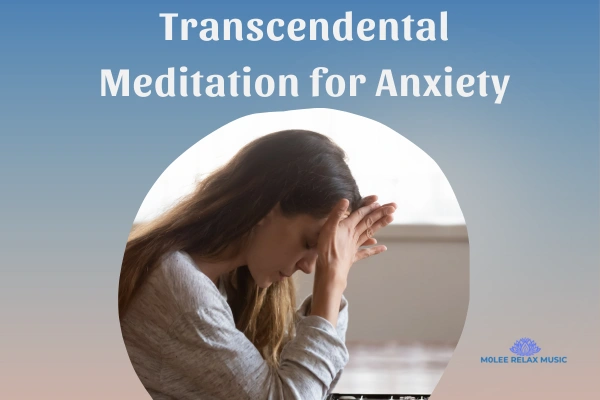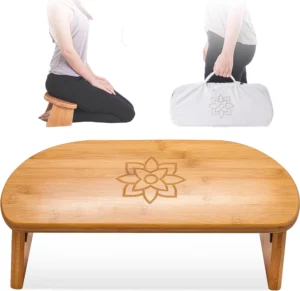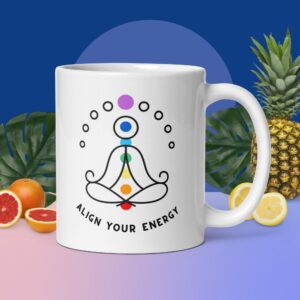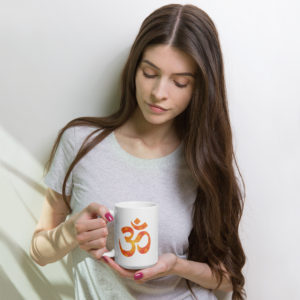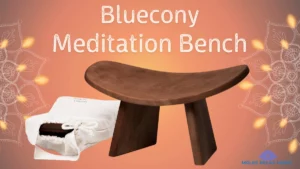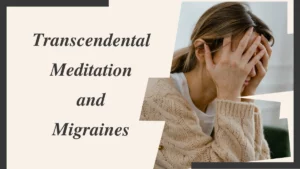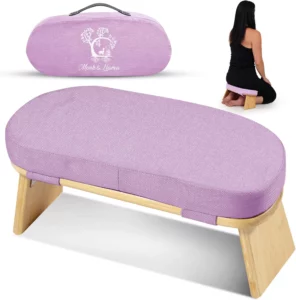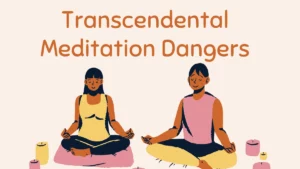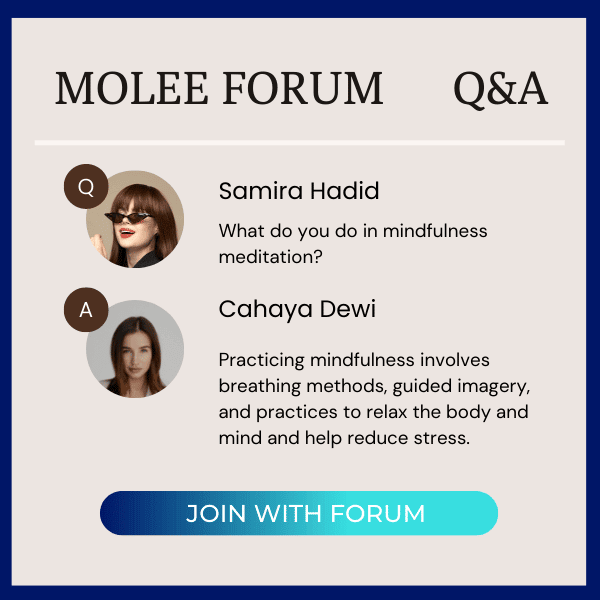Table of Contents
- Understand the Anxiety
- What is Transcendental Meditation (TM) ?
- History of Transcendental Meditation
- Does Transcendental meditation cause anxiety ?
- Does transcendental meditation help anxiety ?
- Is TM Like Other Meditation for Anxiety?
- Two Australians Talk about TM and Anxiety.
- Scientific Research about Transcendental Meditation for Anxiety
- 1. Effects of Transcendental Meditation on Mental Health: A Before-after Study
- 2. Effects of the Transcendental Meditation Technique on Trait Anxiety: A Meta-Analysis of Randomized Controlled Trials
- 3. The effect of the Transcendental Meditation technique on anxiety level
- 4. Differential effects of relaxation techniques on trait anxiety: A meta-analysis
- Reviews on Transcendental Meditation for Anxiety
- Final Thoughts
- FAQs on Transcendental Meditation for Anxiety
Stressed out lately? Yeah, me too. This fast-paced world has my anxiety through the roof most days. If you can relate, you’ve probably tried a million things to find some peace and quiet.
Transcendental meditation (TM) has a promising solution for anxiety. TM is an ancient practice that’s become trendy again for good reason – it naturally reduces anxiety and quiets your racing mind.
With some simple guidance, you may find transcendental meditation can give you real relief from the stresses of daily life.
In this post, I’ll explain how transcendental meditation helps with anxiety with findings of scientific research carried out on transcendental meditation for anxiety.
My aim is to help you see if TM could be the ticket to getting your anxiety under control. With some simple guidance, you might find transcendental meditation can really keep that anxiety monster in check.
Before discuss about results of scientific researches, is essential to understand the concepts of transcendental meditation and anxiety.
Understand the Anxiety
Anxiety is a normal emotion that everyone feels at times. It becomes a disorder when it is excessive, persistent, and interferes with daily life.
Anxiety disorders involve more than temporary worry or fear. They are chronic conditions causing overwhelming anxiety for months or years.
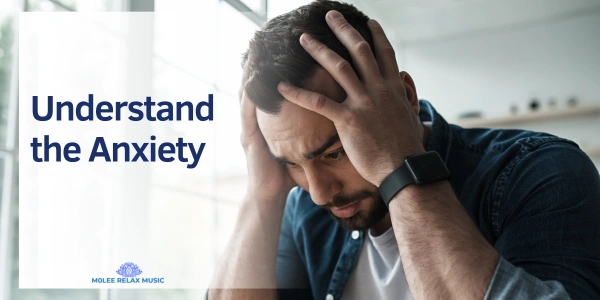
Some common types of anxiety disorders are generalized anxiety, social anxiety, panic attacks, phobias, and separation anxiety.
Anxiety disorders have no single cause but they can be a combination of biological factors like genetics and brain chemistry. Life experiences and personality also play a role. It’s a complex interplay of nature and nurture.
Imbalances in neurotransmitters like serotonin play a role for some. Anxiety disorders often run in families.
The hallmark of anxiety is emotional distress out of proportion to the situation. Physical symptoms like rapid heart rate, nausea, and insomnia frequently occur also. Anxiety disorders are treatable through therapy, medication, lifestyle changes, or alternative approaches like meditation.
What is Transcendental Meditation (TM) ?
Transcendental meditation is a simple meditation technique to calm down your mind and bring into a deep consciousness step by step. During TM, you comfortably close your eyes and silently repeat a mantra.
This mantra helps let go of distracting thoughts and allows your mind to effortlessly experience a state of inner quiet.
TM doesn’t require concentrating, visualizing, or trying hard to control your thoughts like other forms of meditation. The easy, natural process of TM sets it apart.
You don’t have to actively work at meditating – the repetition of the mantra leads your mind to settle down and experience deeper relaxation on its own.
You sit comfortably with your eyes closed and repeat a mantra silently. This allows your mind to effortlessly settle into a state of inner calm.
Read our full article on how to do transcendental meditation correctly to know more about the TM technique.
History of Transcendental Meditation
TM has its roots in the ancient Vedic traditions of India. It was popularized in the West by the Maharishi Mahesh Yogi in the 1960s. TM is different from other forms of meditation because it doesn’t involve concentration, visualization, or actively trying to control thoughts.
The effortless nature of TM sets it apart from active meditation techniques. You don’t have to actively focus or “work” at meditating. Instead, the process happens automatically by repeating the mantra. This allows deep rest and relaxation.
Now, some common questions:
Is TM the same as mindfulness for anxiety?
Not exactly. Mindfulness is about paying attention to your thoughts but not judging them. TM is about relaxing without trying, using your mantra. Explore the differences between mindfulness and transcendental meditation from our previous written article.
Can meditation get rid of anxiety completely?
It’s not that simple. TM is a strong tool that helps a lot with stress and worry, but whether it cures anxiety depends on each person and sometimes other treatments they might be using. Everyone’s experience is different.
In short, TM isn’t about battling anxiety. It’s about finding a quiet space inside ourselves. This peaceful feeling helps us handle life’s ups and downs better.
Does Transcendental meditation cause anxiety ?
Some of us worry that meditating will increase anxious thoughts. But that’s a misconception. TM doesn’t stir up or surface anxiety. However, when starting, it’s normal to encounter some initial discomfort as your mind begins to settle.
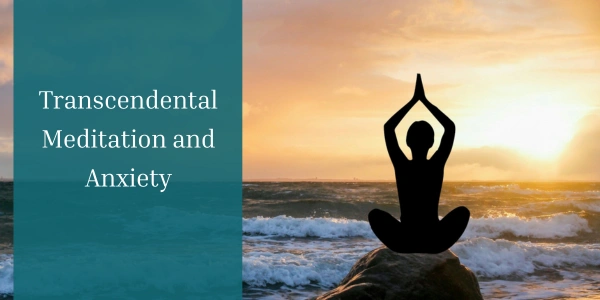
When I first tried meditating, I thought my racing thoughts would never slow down. The mantra felt unfamiliar. Focusing inward made me notice my anxiety more.
Many beginners face similar challenges. Adjusting to a quieter mind can be uncomfortable at first. But it’s temporary. With consistent practice, the mind gradually calms down on its own.
TM doesn’t force your mind to do anything unnatural. It simply allows your busy thought patterns to settle through the repetition of the mantra. Regular TM practice helps anxious minds find their natural state – quieter, less agitated, and more peaceful.
While momentary discomfort can happen initially, TM doesn’t create anxiety. Over time, it does the opposite – dissolving anxiety through deep rest. Don’t be discouraged by some growing pains at the start! The long-term benefits make pushing through worth it.
Does transcendental meditation help anxiety ?
In my experience, yes – TM is incredibly effective for anxiety relief. Studies back this up too. Here’s how TM targets anxiety:
Quieting Racing Thoughts
Anxious minds get overwhelmed by worried thinking. TM effortlessly settles this “monkey mind.” As you repeat the mantra during meditation, distracting thoughts naturally fade away.
Reducing Stress Hormones
Anxiety keeps our body constantly on high alert, flooding it with stress hormones like cortisol.
Promoting Deep Rest
Anxiety tires us out but also makes it hard to sleep. The deep rest during TM gives anxious brains much-needed recovery.
Is TM Like Other Meditation for Anxiety?
Mindfulness and other focused meditation can also help anxiety to an extent. But TM works differently. Effortlessly repeating the mantra allows deeper settling of the mind. Actively trying to control thoughts can stir up frustration.
If anxiety is holding you back, TM could provide real relief when other approaches fall short.
Two Australians Talk about TM and Anxiety.
video credit : https://tm.org.au/transcendental-meditation-anxiety/
Scientific Research about Transcendental Meditation for Anxiety
Hundreds of studies have been published over the past 50+ years from well-respected institutions. Now, I know scientific studies might not get you super excited. But stay with me! Looking at the evidence can help us understand how and why TM works on anxiety.
In this section, I’ll present the valuable findings from four key studies on TM and anxiety relief. I’ll try to break down the science lingo into simple takeaways for non-researchers. Whether you struggle with a clinical anxiety disorder or just get stressed out easily, these studies make clear TM can chill out anxious minds.
The consistent results across different types of studies are pretty convincing. Read on to learn what decades of data say about TM’s anxiety-busting abilities!
1. Effects of Transcendental Meditation on Mental Health: A Before-after Study
This research paper [1] discusses the positive effects of Transcendental Meditation on mental health, particularly in reducing anxiety, and suggests that TM may be an effective approach for improving mental well-being, independent of demographic factors.
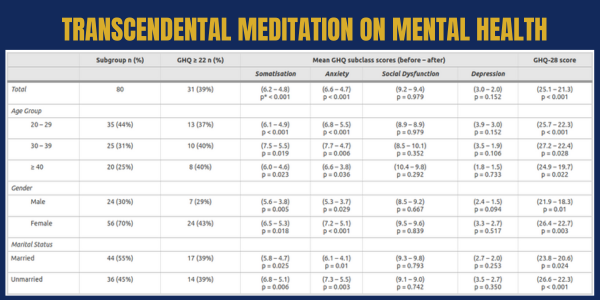
Participants and Method :
- The study included participants with a mean age of 32.4 years.
- Among the participants, 70% were female, and 55% were married.
- A before-after clinical trial was conducted over 12 weeks.
- Participants were enrolled through random sampling.
Results of the study :
Before the TM course, 38.8% of participants had mental distress. This percentage decreased to 26.3% after the 12-week course.
The overall score significantly improved, moving from above the mental distress threshold (cut-off level of 22) to below this level, which has clinical significance.
TM is reported to reduce anxiety, and systematic reviews suggest it may be more effective than other relaxation therapies.
The positive effects of TM on mental health appeared to be independent of age, sex, and marital status, as similar improvements were observed across all subgroups.
2. Effects of the Transcendental Meditation Technique on Trait Anxiety: A Meta-Analysis of Randomized Controlled Trials
In this comprehensive meta-analysis [2], researchers studied 14 research papers in 16 studies involving 1,295 participants with a focus on the impact of transcendental meditation on anxiety.
The objective of this research was to identify the efficiency of TM in reducing anxiety and the specific factors to enhance the efficiency.
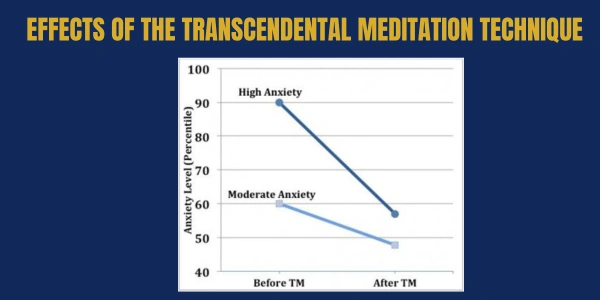
Principal Findings of this study:
1. Effectiveness in Reducing Anxiety:
The research highlighted that Transcendental Meditation has a consistent, positive role in decreasing anxiety levels. This effectiveness was particularly notable when compared to standard treatments, including instances where subjects were on wait lists or used as attention controls.
2. Dependence on Initial Anxiety Levels:
The analysis showed that individuals experiencing higher levels of initial anxiety saw more significant improvements, suggesting TM’s strong potential as a critical intervention for serious anxiety-related conditions.
3. Durability of Benefits:
Positive outcomes from TM were evident within the first few weeks of practice and appeared to sustain over extended periods, with some cases showing continued benefits for up to three years.
4. Safety of the Technique:
Throughout the studies, there were no adverse effects reported from the practice of TM, confirming its safety among the participants involved.
5. Superiority to Other Methods:
In comparison to other forms of intervention, TM was found to be more beneficial, positioning it as a potentially preferable treatment alternative for anxiety.
The results are hopeful, but we’re not at the end of the road. More research is crucial, especially for those battling intense anxiety. Only with thorough studies and medical guidance can we confirm if TM is a reliable help for all.
3. The effect of the Transcendental Meditation technique on anxiety level
In this study [3] , researchers took a close look at how well Transcendental Meditation (TM) holds up against usual relaxation methods in making a real difference for people struggling with anxiety.
The participants comprised 33 graduate and undergraduate students, systematically allocated to either the TM group or the control group engaging in passive relaxation exercises.
The structured investigation unfolded as follows:
- Objective: The central objective was a rigorous assessment to discern whether TM offered superior outcomes in attenuating anxiety relative to conventional relaxation practices within a constrained two-week time frame.
- Participant Cohort: A total of 33 individuals, encompassing both graduate and undergraduate demographics, were randomized into distinct cohorts. One undertook the TM protocol, and the other adhered to prescribed relaxation techniques.
- Methodology: Adhering to a stringent experimental regimen, both groups participated in their respective practices twice daily. The distinction was in the specific relaxation strategies employed, with the control group engaging in passive modalities, contrasting with the active TM methodologies implemented by the other.
- Anxiety Assessment Metrics: The State-Trait Anxiety Inventory’s Trait scale served as the evaluative instrument, gauging participants’ anxiety indices at two critical junctures – pre-experiment and post-intervention.
- Outcomes: Analytical review of data post-intervention revealed a statistically significant diminution in anxiety parameters within the TM cohort compared to the control group, underscoring the heightened potency of TM in stress mitigation.
The results are pretty exciting, but the study’s authors aren’t stopping there. They pointed out that we need more research to get the full picture.
To put it simply, the study shows that TM seems to be a stronger tool for reducing anxiety compared to just sitting quietly and trying to relax. That’s big news! But, it’s just part of the story. The researchers are calling for more studies to dig deeper.
4. Differential effects of relaxation techniques on trait anxiety: A meta-analysis
This research [4] involved a systematic review and meta-analysis of various relaxation techniques’ efficacy in managing trait anxiety.
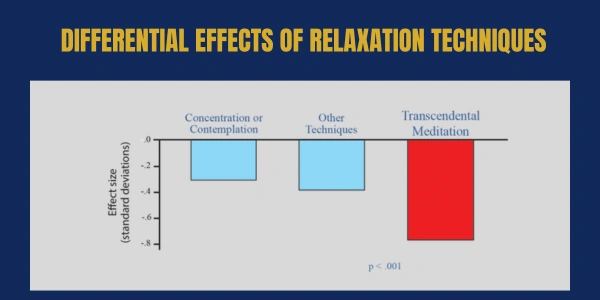
Key Outcomes of the study:
1. Superiority of Transcendental Meditation: The analysis highlighted Transcendental Meditation’s (TM) marked effectiveness in anxiety reduction, significantly surpassing other reviewed techniques.
2. Limited Impact of Concentration-Based Practices: Conversely, relaxation strategies entailing intensive focus or concentration manifested lesser efficacy in alleviating anxiety symptoms.
3. Influence of Demographic and Procedural Variables: The effectiveness of relaxation techniques was found to be contingent on participant demographics, treatment duration, session frequency, and participant retention in programs.
4. Consistency Across Various Conditions: These conclusions remained robust even after adjusting for diverse variables. TM consistently outperformed concentration-based meditation practices.
5. Irrespective of Publication or Study Design: The relative effectiveness of TM, as opposed to other techniques, was consistent, regardless of whether the studies were published or featured robust methodologies.
The meta-analysis, involving 146 distinct studies, unequivocally identified TM as more efficacious in mitigating trait anxiety than concentration meditation or other relaxation techniques. Statistical data revealed TM to be approximately two to three times more effective, a finding consistently observed across various comparative parameters and study conditions.
Reviews on Transcendental Meditation for Anxiety
Dive into stories from real people who have embraced Transcendental Meditation for anxiety. These aren’t just reviews; they’re personal journeys of finding quiet in the storm.
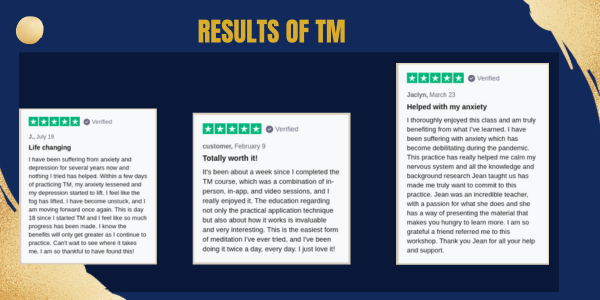
Final Thoughts
It is exciting how transcendental meditation reduces anxiety. What’s special here is how this no-pill solution has a thumbs up from science for helping folks feel less anxious, not just for a hot second but in the long run.
Sure, diving into TM takes a bit of grit at the start because, let’s be honest, real change doesn’t happen overnight. But if you hang in there, the rewards for your mental peace are huge. It’s like finally having a shield against the overwhelming waves of anxiety that life throws your way.
So, for anyone desperate for a bit of serenity, TM is more than just an old tradition. It’s a proven ally.
Read our full article on Transcendental Meditation and Cardiovascular Health.
References:
- Yunesian, M., Aslani, A., Vash, J.H. et al. Effects of Transcendental Meditation on mental health: a before-after study. Clin Pract Epidemiol Ment Health 4, 25 (2008). https://doi.org/10.1186/1745-0179-4-25
- David W., Orme-Johnson and Vernon A. Barnes, Effects of the Transcendental Meditation Technique on Trait Anxiety: A Meta-Analysis of Randomized Controlled Trials https://www.liebertpub.com/doi/10.1089/acm.2013.0204
- Dillbeck MC. The effect of the Transcendental Meditation technique on anxiety level. J Clin Psychol. 1977 Oct;33(4):1076-8. doi: 10.1002/1097-4679(197710)33:4<1076::aid-jclp2270330435>3.0.co;2-b. PMID: 336648. https://pubmed.ncbi.nlm.nih.gov/336648/
- Kenneth R. Eppley, Allan I. Abrams, Jonathan Shear, Differential effects of relaxation techniques on trait anxiety: A meta-analysis, https://onlinelibrary.wiley.com/doi/10.1002/1097-4679(198911)45:6%3C957::AID-JCLP2270450622%3E3.0.CO;2-Q
FAQs on Transcendental Meditation for Anxiety
Is transcendental meditation good for anxiety?
Yes, transcendental meditation is recognized for significantly easing anxiety by fostering a state of deep relaxation and mental stillness, often backed by scientific studies.
What is the number one cure for anxiety?
There isn’t a “number one” cure as anxiety treatment varies, but widely accepted approaches often combine therapy, lifestyle adjustments, and sometimes medication, tailored to individual needs.
Can meditation cure anxiety completely?
Meditation can greatly alleviate anxiety symptoms, promoting long-term resilience and emotional balance, although it’s not a standalone cure for persistent anxiety disorders.
Which meditation cures anxiety?
Transcendental Meditation (TM) is highly regarded for its effectiveness in reducing anxiety, providing a unique approach through mantra repetition and deep relaxation.
Why learn TM for anxiety?
Learning TM for anxiety helps individuals tap into a state of profound rest, reducing stress hormones, and triggering the body’s natural relaxation response, making it a valuable tool for mental tranquility.


